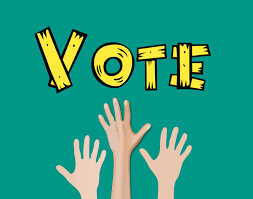Election Programmes Code of Broadcasting Practice refreshed
The code standards and guidelines apply to Election Programmes, which are election advertisements broadcast on television and radio by or for political parties and candidates in the run-up to a general election.

- Country:
- New Zealand
BSA has today released the refreshed Election Programmes Code of Broadcasting Practice ahead of the 2020 General Election. The code standards and guidelines apply to Election Programmes, which are election advertisements broadcast on television and radio by or for political parties and candidates in the run-up to a general election.
The Election Programmes Code has been updated to:
• Provide enhanced guidance to assist broadcasters, political parties, and candidates, and the public understand how the standards apply to broadcast Election Programmes in the lead up to a General Election;
• Reflect legislative changes arising from the Broadcasting (Election Programmes and Election Advertising) Amendment Act 2017 such as the removal of the requirement for opening and closing addresses to be broadcast on television and radio; and
• Where appropriate, align with similar standards overseen by other standards entities, with the aim of ensuring some consistency across the platforms on which election advertising may appear.
The Election Programmes Code of Broadcasting Practice (Election Programmes Code) has been refreshed after consultation with broadcasters, government and non-government stakeholders and the public.
BSA Chief Executive Belinda Moffat said: “The right to freedom of expression, and particularly political speech, is important in a democratic society. This is particularly so in the lead-up to a general election, when political parties and candidates are seeking to influence voters, and audiences are seeking information to enable them to make informed voting decisions.
“The Election Programmes Code sets standards for broadcasters to ensure that the exercise of political speech in Election Programmes does not cause harm. It is important therefore that the code is clear about how the standards apply and we hope that the refreshed code achieves this purpose. The code is an important safeguard against the risk of misinformation during the election process. During an election period, members of the public may complain to the BSA if they are concerned that an election programme does not meet the standards. From June until September 2020, the BSA will operate a fast track process so that election-related complaints can be dealt with swiftly.”
For the 2020 General Election, the Election Programmes Code will apply to election programs broadcast on television and radio during the election period which runs from 16 August 2020 until midnight on 18 September 2020.
Election Programmes, to which the Election Programmes Code applies, are usually short promotional clips broadcast for political parties or candidates. Complaints about Election Programmes during the election period go directly to the BSA. Other election-related programs, such as news, current affairs, comment, documentaries, or entertainment and content about local body elections are subject to the usual broadcasting standards in the free-to-air television, pay television or radio broadcasting codes. Complaints about such programs must first be made to the broadcaster.
Complaints about election advertisements in other media may be made to the Advertising Standards Authority. Complaints about election matters in the editorial content of members of the NZ Media Council may be made through the Media Council complaints process. Complaints about the requirements for election advertising generally (such as funding, promoter statements, and authorizations) may be made to the Electoral Commission.










